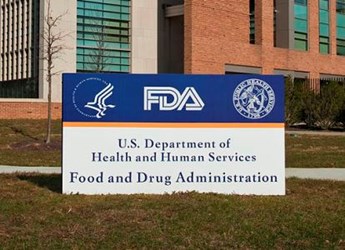UK's NICE Joins FDA Program To Speed Payer Coverage, Access To Medical Devices
By Jof Enriquez,
Follow me on Twitter @jofenriq

The United Kingdom's National Institute for Health and Care Excellence (NICE) says it is working with the United States Food and Drug Administration’s (FDA) Payer Communication Task Force (PCTF) in assisting sponsors of medical devices and diagnostics gather and demonstrate the clinical efficacy and cost-effectiveness of their products.
Regulatory decisions typically are based on clinical trial data, but payers like the NHS in the UK, Medicare in the US, commercial insurance firms, and health technology assessment (HTA) groups, may have additional or different criteria on which they base coverage decisions or reimbursements.
“In their efforts to get a product to market, companies can get caught out,” explains Leeza Osipenko, who leads the NICE Scientific Advice program, in a news release. “To win regulatory approval in the US, companies give the FDA data on the safety and efficacy of their devices. But although they often do enough to win FDA approval, they need additional evidence to prove to the organisations who would actually pay for those devices that they are cost-effective and clinically-effective.”
“To help companies overcome this hurdle, NICE’s Scientific Advice program has joined forces with the FDA in the Payer Communication Taskforce. Early engagement should help medical technology makers to design their development programs better to produce the data needed both to obtain regulatory approval and to persuade the payers of the value of their product,” she continued.
FDA’s Center for Devices & Radiological Health (CDRH) initially established the PCTF to facilitate communication between device manufacturers and payers to potentially shorten the time between FDA approval or clearance and actual coverage decisions, according to RAPS.
Established in 1999, NICE develops guidance on public health interventions or programs in the UK, including guidance on the use of new and existing medicines, treatments, procedures, and new health technologies within the NHS, through technology appraisals and other mechanisms. The two organizations announced in October that they are fast-tracking the appraisal and entry of new medical technologies for NHS patients.
For the joint initiative with FDA, NICE says it will offer Scientific Advice, a fee-for-service program providing companies advice on proposals for evidence generation on economic and clinical effectiveness. NICE says it will be reviewing evidence a company is gathering; providing advice in a pre-submission meeting with the other advisory bodies and commenting on the resulting company’s minutes; or producing formal written advice as a follow-up to the pre-submission meeting.
CDRH in February said that, in order to streamline the process from FDA clearance to payer decisions, it is putting in place a new method for device sponsors to easily invite payers to FDA Pre-Submission meetings to help sponsors meet positive payer coverage decisions.
